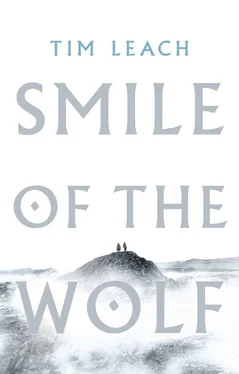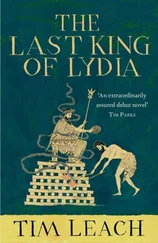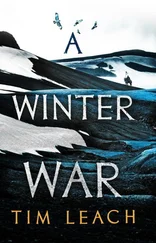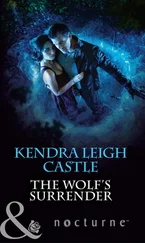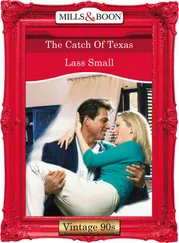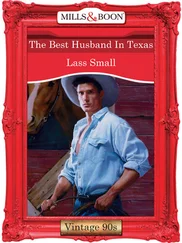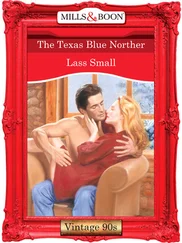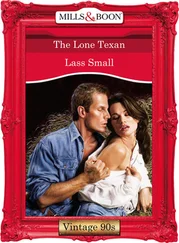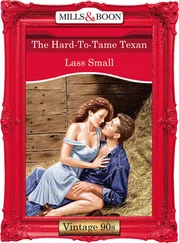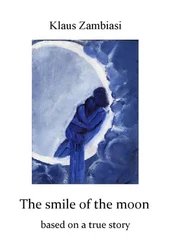I had no horse, no silver that I would spare to buy one, no friend in that place who might lend me one. And so I walked from one farm to the next, out towards the west, striding towards the sea. As the sun sank low I would seek out the closest longhouse, follow the rising smoke like a sailor chasing a star. I knocked on those doors and asked for a place to sleep at night.
Most did not know my name, but they knew me for what I was. There was no mistaking the ragged clothes that I wore, the hollow body of a half-starved man. For the outlaw ages as a cursed man does, old before his time. Those three years in the mountains had stolen my youth.
There were some who looked on me with fear; they would let me in and give me bread, and let me sing a song or two, but they would not speak a word to me and sent me on my way the moment the sun rose. But most greeted me with kindness, gifting me old clothes to replace my outlaw rags, sharing unwatered ale with me. And at night they and their children gathered around the fire and listened to my stories. For all love to hear tales of the outlaws.
So I told them that a giant lived in the valley and a dragon slept beneath it. That we never saw the sun, that we fought monsters and sorcerers. And all of it was a lie, and all of it was true.
I asked them to tell me their stories. And I asked them to tell me stories of Gunnar the Killer.
Most had never heard the name. Some had heard of him and of the feud. A few even claimed to have been at the Althing when I had been outlawed. None could speak anything of use to me, for we were still a long way from the Salmon River Valley. Yet in their silence I found a comfort. If some disaster had struck, if blood had been spilt, surely they would have heard it.
One of them gave me a horse – half-blind and he twitched and shivered uncontrollably, but he still had a little life left in him. Enough, perhaps, to see me home.
I came to Borg on that horse and looked once more upon the mountains that had made me wish to stay, listened to the calling of the sea for the first time in three years. I looked for Ragnar’s ship in the dock, but I could not find it. He was out at sea or was further north along the coast.
North, then. Through the deep valley, past cliff face and waterfall, rising up and up towards the Salmon River Valley. More carefully now, for I came close to the lands of men who might know me. I was an outlaw no longer, but that might matter little to Björn and his kin. They would risk outlawry themselves if it would see me dead. Only once I was with Gunnar would I be safe. The hills broke open and before me was the sea, the valley, my home. The great arcing curve of the bay, the great mountain of Helgafell behind me, the rolling land of the dales in front. I told myself that I would not leave it again, that nothing could compel me to do so. Not the lure of the Althing, the whisper of the sea. Not a sentence of outlawry or any curse or witchcraft. I would live and die in that place.
And suddenly, I was afraid.
Do not ask me how, but I could smell it, taste it, long before that could have been possible. And I was hurrying then, stirring that old, dying horse to one last great chase. And he was brave beneath me. He lifted his head and for the last time he seemed almost to break into flight.
We rode across the farmlands, past the grazing cattle, the remnants of the harvest. Until that smell, that taste returned, stronger than ever. The fire in my nostrils, the ash on my tongue. And I could see the smoke rising.
I did not want to believe, at first. I whispered to myself that it must have been some other place, some other feud in the valley. That Olaf the Peacock had angered some neighbouring chieftain and the great hall of Hjardarholt now lay in ashes. That Bolli’s long dispute over grazing lands with Bjarni had finally been settled in blood and fire. There were so many feuds and disputes it did not have to be the one I knew all too well. Yet somewhere deep within, where men feel hate and love and all things true, already I knew what must have happened.
I came over the rise of the ground beside Gunnar’s farm and looked down upon what remained.
It was the little things that I saw first. The fragments of burning wood that danced in the wind like fireflies. The ground, marked with the passage of half a hundred footsteps, that carved a great circle around the farm. The little slivers of iron, chipped from sword struck against sword, that glittered on the earth under the light of the low sun.
Then I was ready to look upon the rest. The longhouse, black from fire and open to the sky. The wind shifting the great pile of ashes, so that it looked as if some great and monstrous creature were stirring unseen beneath them. And the blood upon the ground. So much it was as though a giant had been slain there.
But it had not. No giant had died there, no great beast slain. Only a man and his family.
I held my maimed hand out towards the gutted longhouse and felt a little heat rising from it. It had been burned the night before. I had returned a day too late.
No. Stop. Wait a moment and let me think.
Yes, you are right, I am tired. And yes, the ale has touched my mind a little. And yes, perhaps I do not wish to speak of this. This is a memory that I have interred as deep as though it were the body of a great king, whose tombs are like cities. But this is a memory like a ghost. Again and again I cut the ground for its grave and cover it with heavy earth. Still it rises, still it walks.
I will tell it to you. I am afraid if I do not speak it tonight, I will never have the courage to do so again. I would not live a coward.
But first, let me tell you a different story. Another story of Gunnar.
Many of them I have told you already. Of how we met in the home of Olaf the Peacock, how I charmed him with a song. Soon I will tell you the story of how it was that he died.
But now, let me remember this.
It was the Day of Movement in early summer, when wanderers like me must go on to their new homes. There was a rare sun that day, a heat falling from the sky that seemed to caress the skin. We sat side by side in front of the door, the earthen wall of the longhouse against our backs, and we basked in that sun, passing a cup of water between us.
‘A good winter,’ he said.
‘Is there such a thing?’
‘I had not thought it, but there is.’ He paused. ‘You sing well.’
‘Well enough.’
‘Better than that.’
‘You have been kind to me.’
‘Kind enough,’ he said, echoing my tone, a little smile on his lips. ‘Where will you go now?’
‘To find some other place. Perhaps Olaf the Peacock will show me favour. He has a weakness for the songs of an Irishman.’
‘You are only half an Irishman,’ he said.
‘Oh, I do not think there is an Irish singer in the whole of Laxdæla. He may settle for a half-breed like me.’
He ran his thumb around the rim of the horn cup, the nail catching on the nicks and whorls. ‘What if you cannot find a place to take you in?’ he said.
‘There is always a place for a poet.’
‘But what if you could not?’ he persisted.
‘I would die, I suppose. If I could not find a home for winter.’
He stared out across the fields, towards the distant sea. ‘I would not want to rely on the kindness of others.’
‘It is good to keep moving,’ I said. But I felt that ache in the heart, where one must leave the place that one is meant to be, or leave the woman one is meant to love. When fate and desire do not meet, as they rarely do, and we must leave behind what matters most to us.
Читать дальше
